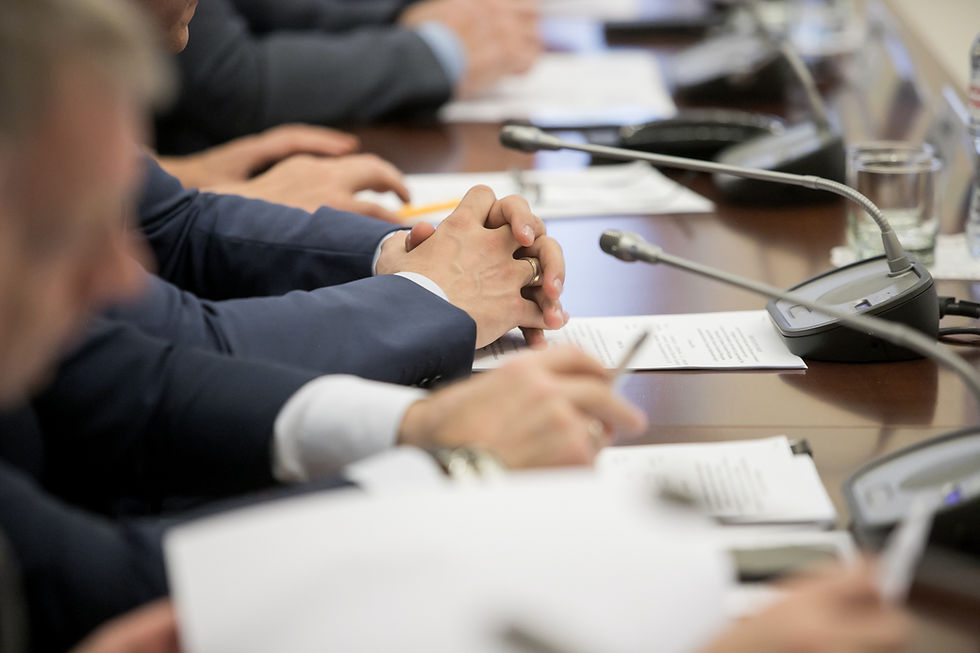Navigating Censorship and Obstruction as Journalists
- Emely Albelo
- Jun 2, 2025
- 3 min read

Hello aspiring journalists!
The ideals of a free press and the unhindered flow of information are foundational to a democratic society. They empower the public to make informed decisions and hold power accountable. However, the path to truth is not always smooth. You will inevitably encounter forces that seek to control narratives, suppress vital information, and obstruct your ability to report freely. Understanding these challenges and how to navigate them is crucial for the integrity of your work and the preservation of press freedom.
At its core, censorship and obstruction of information involve any attempt by governments, corporations, or other powerful entities to suppress information, deny access, or prevent journalists from reporting freely. This can manifest in various forms, from outright government bans on certain topics to corporate public relations strategies designed to bury unfavorable stories, or even powerful individuals leveraging their influence to silence critical reporting. These actions are a direct assault on the fundamental principles of a free press and the public's right to know.
As aspiring journalists, it's important to be aware that you may encounter situations where you feel pressure to shape your reporting in a way that benefits an entity other than the truth and your readership. This pressure might come from various sources outside of your direct editorial chain – perhaps an advertiser, a community leader with sway, or even an individual within your own organization who has allegiances beyond journalistic integrity. You might be subtly encouraged to downplay certain aspects of a story, emphasize others, or even avoid a topic altogether.
Navigating these situations requires a delicate balance of professionalism, ethical fortitude, and strategic communication.
Here are some approaches you can consider when faced with such pressure:
1. Know Your Ethical Code: Familiarize yourself deeply with the ethical guidelines of journalism. These principles, such as accuracy, fairness, independence, and impartiality, are your strongest defense. Referencing these standards can provide a solid foundation for your decisions.
2. Prioritize Your Editor: Your primary allegiance as a journalist within a news organization is to your editor and the editorial process. If someone outside this chain attempts to influence your reporting, your first step should be to communicate this to your editor. They are your advocate and have the authority to protect the integrity of your news coverage.
3. Document Everything: Keep detailed records of any attempts to influence your reporting, including who approached you, what was said, and when it occurred. This documentation can be crucial if further action is needed.
4. Stand Firm on Facts: Emphasize that your reporting is based on verifiable facts and thorough research. You can politely explain that altering or omitting factual information would compromise the accuracy and credibility of your work.
5. Highlight the Public Interest: Frame your commitment to reporting truthfully as a service to the public. Explain that the role of journalism is to inform citizens so they can make informed decisions, and that any attempt to control information undermines this vital function.
6. Use Professional Language: When communicating your position, maintain a professional and respectful tone. Avoid accusatory language. Instead, focus on the principles of journalism and the importance of editorial independence.
7. Suggest Alternatives (Where Appropriate): If the concern raised has some merit (though not enough to warrant altering the factual basis of your reporting), you might suggest exploring the issue from a different angle in a separate piece, ensuring all perspectives are eventually heard through the proper editorial channels.
Ways to Phrase Your Concerns:
"Thank you for your input. I want to ensure my reporting adheres to our journalistic standards of accuracy and fairness, so I'll be discussing this with my editor to determine the best way forward."
"I understand your perspective. However, based on my research and findings, this is the most accurate representation of the situation. I'm happy to discuss this further with my editor to ensure we're presenting a comprehensive picture."
"Our commitment is to provide unbiased information to the public. Any direction on how to frame this story would need to align with our established editorial guidelines, which prioritize truth and independence."
"I appreciate you bringing this to my attention. To maintain the integrity of our reporting, all editorial decisions regarding the content of the article will be made through the standard editorial process."
Navigating these situations can be challenging and may sometimes feel uncomfortable. However, remember that your commitment to truth and ethical reporting is paramount. By understanding the nature of censorship and obstruction, knowing your rights and ethical obligations, and communicating professionally, you can uphold the integrity of your work and contribute to a truly informed public. Your voice and your commitment to the truth are vital – don't let them be silenced.






Comments